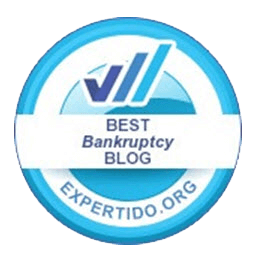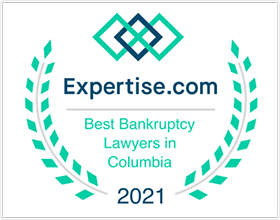If you’re having the kind of financial problems that leave you considering bankruptcy, you have enough stressors to deal with, and the thought of taking on the additional hurdle of going to court may be more than you can handle. However, the bankruptcy process – though legally challenging – doesn’t always involve a formal court proceeding, and when it does, having an experienced South Carolina bankruptcy attorney in your corner can alleviate the stress involved.
The 341 Hearing
All bankruptcy filers are required to attend an official meeting that is known as the 341 hearing or the meeting of creditors, which doesn’t involve a judge. Instead, an assigned trustee conducts the meeting. While your creditors have the right to ask you questions about your bankruptcy filing under oath at this hearing, most choose not to attend. Your skilled legal counsel will ensure that you’re well prepared for your hearing and will attend with you, which helps to take the pressure off.
Filling Your Bankruptcy Forms
You’ll need to file your bankruptcy forms with the clerk at the bankruptcy court, but your trusted bankruptcy attorney will take care of this step for you. Most bankruptcies are now filed electronically, which eliminates the need for even an initial trip to the courthouse.
Chapter 7 Bankruptcy
The simplest and most common form of bankruptcy is Chapter 7, which discharges unsecured debt like the following:
- Credit card debt
- Medical bills
- Payday loans
- Unsecured personal loans
Other than the initial meeting of creditors, you’re unlikely to have any additional hearings in the Chapter 7 process, which generally requires from about four to six months to finalize. Once your Chapter 7 is successfully completed, you’ll receive a bankruptcy discharge that dissolves the debts addressed.
Chapter 13 Bankruptcy
Chapter 13 bankruptcy is a repayment process that is commonly referred to as reorganization. These cases are more legally complex than Chapter 7 cases, and they occasionally (but not usually) require a court appearance.
Motion to Lift the Automatic Stay
If your creditor is coming after your house or car with foreclosure or repossession during your repayment period, which is generally three to five years, they’ll need to have the automatic stay that’s in place lifted. If you oppose this motion, you can fight it in court – at a hearing in which your knowledgeable bankruptcy lawyer will skillfully advocate for the stay to be kept in place.
Adversary Proceeding
If a creditor challenges your right to bankruptcy or challenges the dischargeability of a specific debt, they can file an adversary proceeding with the court that you’ll be required to attend. Such cases, however, are rare and often settle out of court.
Confirmation Hearing
The repayment plan associated with your Chapter 13 bankruptcy must be approved. This often translates to the judge approving the trustee’s recommendation, and there are other instances when a hearing isn’t required. If your case does require a confirmation hearing, your seasoned bankruptcy attorney can generally attend on your behalf.
With skilled legal guidance on your side, there’s no need to worry about court appearances in relation to your bankruptcy filing.
Turn to an Experienced South Carolina Bankruptcy Attorney for the Help You Need
The accomplished South Carolina bankruptcy attorneys at Reed Law Firm have the experience, focus, and legal skills to help guide your case toward a favorable resolution that affords you the financial peace of mind you’re looking for. Learn more by contacting or calling us at 803-855-1774 in Columbia, South Carolina, or at 843-418-9004 in Florence, South Carolina, today.


